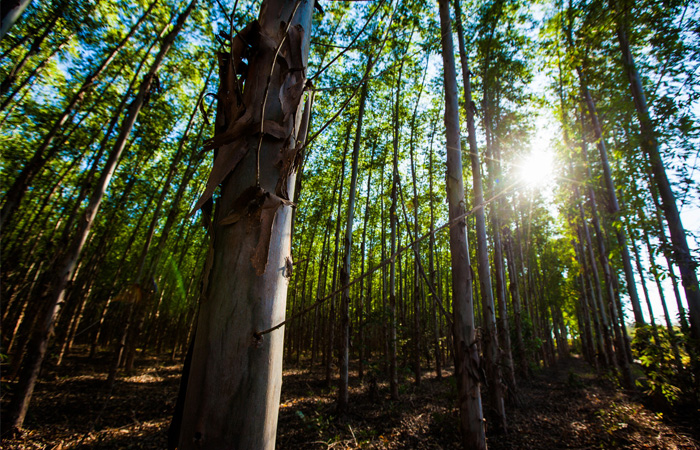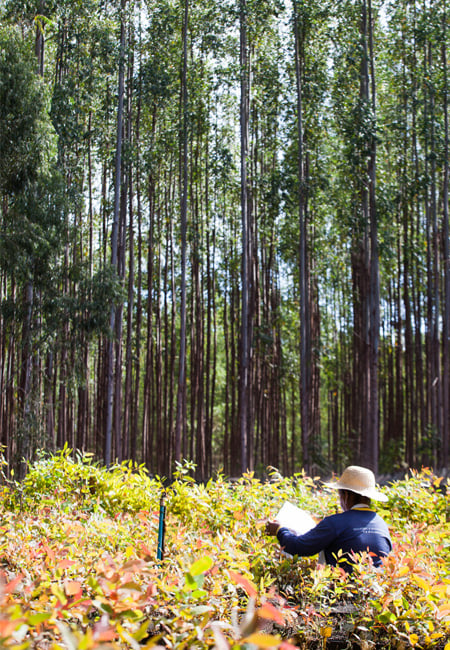

12/12/2019 - Environment
In Brazil you’ll find a latest-generation pipe mill, an electric steel mill, thousands of hectares of eucalyptus and an exemplary forest-industry model. Welcome to Vallourec Florestal Ltda...
Minas Gerais, after the gold rush
Minas Gerais is a state in Southeastern Brazil that takes its name from its history of intensive mining for iron, manganese, zinc, bauxite and precious stones.
Minas Gerais is the second-richest state in Brazil after São Paulo. Its capital, Belo Horizonte, is the historical hub of the steel and automotive industries, which established their headquarters, branches and steel mills in the region. This is the case with Vallourec, which operates a research center in Belo Horizonte itself and two production sites, one in Barreiro with a rolling mill and finishing lines, and another in Jeceaba that combines an electric steel mill, state-of-the-art rolling mill, finishing lines and a pelletizing plant (making iron ore pellets).
Producing “green” tubes
In Brazil, Vallourec didn’t wait for international CSR initiatives before making its production local and ecological.
Vertical integration has been an asset for Vallourec Tubos do Brasil since the beginning – this subsidiary supplies its blast furnaces with wood grown in its own eucalyptus forests and iron ore from its mine in Pau Branco.
Vallourec Florestal Ltda, founded in 1969, owns and operates a 230,000 hectare forest estate (30 times the area of Paris) in the north of Minas Gerais state, within easy reach of the industrial sites. Half of this is so-called “native” forest, which is maintained as is, and the other half is cultivated (110,000 hectares across 22 farms). Here, more than 15 million trees are felled each year, then transformed in special kilns into wood pellets to provide energy to the factories. The logged areas are immediately reforested, and eucalyptus is an energetic plant: it grows to a height of 30 meters in just six or seven years and will regrow after thinning.

The virtuous “forest-industry” pairing
Although transforming tree trunks into wood pellets to fuel the steel mill, and burning wood in the blast furnace in Barreiro and pelletizing plant in Jeceaba do produce CO2 emissions, these are more than reabsorbed by the forest as it grows. A study led by Vallourec’s Sustainable Development Department in conjunction with Brazilian universities and experts, under the control of the French ONF*, confirmed the virtuous credentials of this “forest-industry” pairing. It works like a carbon sink, and far from emitting CO2, sequesters it!
Over a 30-year period (1983-2013), the Brazilian forest has sequestered almost 30 million metric tons of CO2 (carbonization included). In 2018 alone, it recorded a highly significant sequestration level of 3.13 million metric tons! This breath of fresh air cuts the Group’s direct CO2 emissions to around 420,000 metric tons.
*National Forests Office

Saving the climate is possible with the Vallourec model
In 2018, Vallourec stood out strongly in the Environmental category of the Ecovadis ratings with a score of 90 out of 100, placing it in the top 1% of highest scoring companies and well above other companies in the sector. But the Group is not content with this outstanding result. The subsidiary Vallourec Florestal Ltda is continuing its research to improve the scientific selection of trees, programs to nourish the forest and the efficiency of carbonization kilns, to make them ever more energy efficient and less polluting.
In the search for new business models, the Group is considering ways to utilize the Brazilian forest for new business models and to lead the industrial fabric in turning over a new green leaf.
